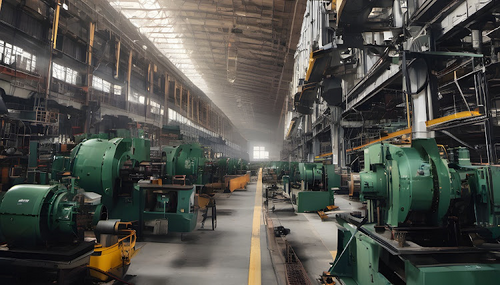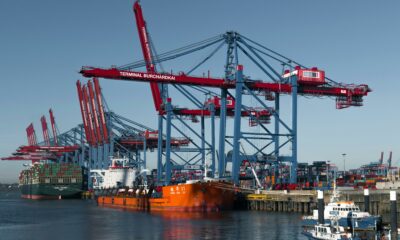Business
South Africa’s Factories Are Falling Silent: Manufacturing Slumps 6.3%

April 2025 delivered another heavy blow to South Africa’s economy as manufacturing production plunged by 6.3% year-on-year, according to fresh data from Statistics South Africa. This steep decline is not just a number it’s a sign that one of the country’s most critical sectors is in real trouble, and the knock-on effects could touch everything from jobs to food prices.
Food and Motor Industries Take the Hardest Hit
The sharpest pain was felt in the food and beverages sector, which saw a 7.6% drop, slicing 1.8 percentage points off the total. This comes as South Africans already battle rising food prices and a fragile supply chain. Beverages and processed foods, in particular, led the downturn, pointing to deeper structural issues.
But it didn’t end there. Vehicle and transport equipment manufacturers, a sector once seen as a growth engine—crashed by a staggering 13%, costing the economy another 1.2 percentage points. With fewer cars being assembled and parts imported or produced, this could signal further job cuts in an already strained labour market.
Manufacturing’s Bigger Role in the SA Economy
Manufacturing still contributes roughly 14% to South Africa’s GDP and employs over 1.6 million people, mostly in semi-skilled roles. For decades, it was the backbone of South Africa’s industrial dream. But now, that foundation seems to be crumbling.
The petroleum and chemicals sector also joined the downward spiral, shrinking 4.7% and chipping away another full percentage point from the headline figure. In total, seven out of ten manufacturing divisions reported a drop in output.
Not Just a Local Problem
While this data paints a grim local picture, the story isn’t unique to South Africa. Global manufacturing also took a knock in April. According to the JP Morgan Global Manufacturing PMI, operating conditions worldwide deteriorated for the first time in four months, with new orders down, jobs cut, and confidence shaken.
Local economist Lara Hodes from Investec confirmed the figures were worse than expected and noted the decline was “broad-based,” affecting almost every major sector except glass and non-metallic minerals. Meanwhile, FNB’s Thanda Sithole said conditions for manufacturers remain “unfavourable,” a polite way of saying things are rough.
A Small Glimmer, But Don’t Get Too Excited
Yes, production rose slightly month-on-month by 1.9% in April compared to March, but don’t be fooled. The broader three-month trend is still negative at -1.4%, showing that the slump is not a one-off dip but part of a deeper, ongoing slide.
Where Is the Urgency?
Despite these dire figures, there’s been little public outcry or government urgency to shore up the sector. On social media, small business owners and factory workers alike voiced concern about job security and power cuts, with one tweet reading: “If the factories go quiet, the country gets louder with protests. Just wait.”
And they might not be wrong. Manufacturing feeds into logistics, retail, exports, and even food security. When it struggles, the ripple effects can paralyze a city or a nation.
The Bigger Question
Can South Africa afford to let this sector wither? With elections looming and economic growth stalling, some hard choices will need to be made about energy, trade, and where to invest. Manufacturing may no longer be the golden child, but letting it collapse could rob millions of livelihoods and delay the country’s recovery for years.
South Africa’s April manufacturing numbers are more than just economic data, they’re a wake-up call. If urgent action isn’t taken to support this key sector, the silence in the factories today could echo loudly across the country tomorrow.
{Source: IOL}
Follow Joburg ETC on Facebook, Twitter , TikTok and Instagram
For more News in Johannesburg, visit joburgetc.com


























